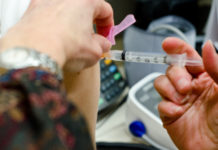by Nick Owens
The Region of Waterloo has issued a public advisory regarding the recent increase in Hepatitis A cases. Acording to the Region, there have been 19 cases already reported this year, an increase of 13 cases from the usual annual reported cases. Hepatitis A is a virus that causes inflamation of the liver and can be transmitted through close contact between people. Untreated, the virus can lead to further issues, including liver failure. As such, this advisor encourages residents of Waterloo to be increase awareness of the Hepatitis A Virus as well as to practice preventative measures while in at risk areas.
Many things can cause transfer of the virus from one person to another. Hepatitis is contagious weeks before any symptoms start to show and can be passed on through more than just physical contact. For instance, a person with Hepatitis A may expose a surface to the virus via bodily fluids (stool, blood, etc.). An uninfected person who comes into contact with one of these surfaces. Properly disinfecting these surfaces with a solution of liquid bleach can prevent the spread from one person to another. Those who are infected with the virus are not recommended to prepare food.
As with most malidies, a good preventative measure against the Hepatitis A virus is with the vaccine. Statistically, the vaccine, is a very effective in stopping the virus from spreading. Most doctors advise to receive the vaccine before traveling to an area where the virus is more common (a similar practice to the one used for measles and malaria). Furthermore, those most at risk are able to receive a free vaccine even with out health cards. As posted on the Region of Waterloo website, these groups include:
– individuals who use drugs
(including marijuana)
– Men who have sex with men
-individuals with chronic liver conditions
Anybody who belongs to one of these groups can recieve these vaccines from Monday to Friday 9 a.m. to 11:30 a.m at either 99 Regina Street, Waterloo or 150 Main Street, Cambridge.
An important note about vaccination is that even after being exposed to the virus, receiving a vaccince immediately can greatly decrease a person’s risk of contracting the virus. Therefore, if exposed, it is important to seek medical attention immediately.
The Waterloo Region is not alone in this outbreak. According to the Center for Disease Control (CDC), an United States run government agency, multiple states are reporting outbreaks of the own. This includesboth Michigan and Ohio (two states which border Southern Ontario). As such, it is important to be aware of the risks associated with Hepatitas A, even while traveling to regions that may not be expected to be of any risk.
For more information visit regionofwaterloo.ca/en/health-and-wellness/hepatitis.aspx

































